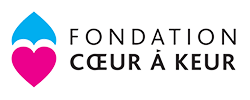- fondationcoeurakeur@gmail.com
- Cotonou, Camp Guezo, Rue 5100
Getting vulnerable children into work in Benin: a real puzzle
The professional integration of vulnerable children in Benin represents a major challenge in the fight against poverty and the improvement of living conditions for young people from disadvantaged backgrounds. Often victims of abandonment, abuse or exploitation, these children face numerous obstacles that limit their access to education and training.
In response to this critical situation, the government, supported by local and international partners, is deploying programs designed to provide them with vocational training and employment opportunities, with the aim of fostering their socio-economic integration. We will take a closer look at the initiatives implemented, the challenges encountered and future prospects for the professional integration of vulnerable children in Benin.
Children’s vulnerability in Benin: a worrying situation
Benin, like many countries in sub-Saharan Africa, faces an alarming situation when it comes to child vulnerability.According to statistics, a large proportion of vulnerable children live in precarious conditions, marked by poverty, lack of parental care and limited access to education. These children, often orphans or from extremely poor families, find themselves left to fend for themselves, sometimes forced to work to support themselves, or victims of exploitation. There are many factors contributing to their vulnerability: family abandonment, domestic violence, forced migration, parental illness or even harmful traditional practices such as the exploitation of children as domestic workers or in markets. This situation has a direct impact on their personal development and future prospects, depriving them of the foundations they need to access vocational training and employment.
State initiatives for professional integration
Faced with the scale of this phenomenon, the Beninese government has set up several initiatives to promote the professional integration of children in vulnerable situations. These initiatives are part of the national social protection policy, and aim to offer these children opportunities for training, skills acquisition and employment. According to social worker Fernande ADEKOU, these initiatives include “the Azôli scheme, a major initiative to help vulnerable young people. Azôli aims to offer vocational training in various sectors to young people from disadvantaged backgrounds, enabling them to acquire technical and practical skills. The program pays particular attention to vulnerable children, offering them free training, social support and, in some cases, material assistance. In addition, we offer apprenticeships and technical training. These range from sewing and mechanics to hairdressing and carpentry – trades that offer immediate employment opportunities. The guichets uniques de protection sociale (Gups), under the aegis of the Ministry of Social Affairs and Microfinance, offer vocational training to young people in difficulty, while providing them with psychological and social support to help them reintegrate into society. The Gups also put these young people in touch with potential employers to facilitate their transition to the world of work. Partnerships with the private sector are also important. In his view, these partnerships aim to encourage companies to offer employment opportunities to these young people, by putting in place incentives such as subsidies or tax breaks.
The challenges of integrating vulnerable children into the workforce
Despite the efforts made by the government and its partners, the professional integration of children in vulnerable situations in Benin still faces several major challenges. These include a lack of financial resources, social stigmatization that makes their professional integration more difficult, and the lack of suitable structures, forcing young people to migrate to the big cities for support.
This increases their vulnerability, as does the lack of diversified training opportunities. There are a number of possible ways of improving the professional integration of vulnerable children in Benin. These include boosting funding and infrastructure, promoting inclusive education, supporting entrepreneurship among vulnerable young people, and combating stigmatization.
Émile Comlan BADEVOU, economist and doctor in sociology, research assistant at the Laboratoire d’Analyse et de Recherche Religions Espaces et Développement, gives the example of an NGO that has set up a professional integration program for vulnerable young people in a rural area of Benin. The NGO partnered with local businesses to offer internships, and organized training sessions focusing on practical skills such as plumbing and sewing, in response to market needs.
Thanks to these initiatives, many young people have found sustainable jobs, while others have been able to launch their own income-generating activities, illustrating that the right strategies and solid partnerships can significantly improve the professional integration of vulnerable children. The professional integration of vulnerable children in Benin is a major challenge that the government and civil society are tackling with determination.
Although significant progress has been made thanks to programs such as Azôli, further efforts are needed to offer these children a better future. Key actions must continue to be at the heart of public policy to ensure that these vulnerable young people can find their place in society and contribute to Benin’s economic growth. In short, the professional integration of vulnerable children in Benin requires a holistic approach that takes into account education, training, the fight against stigmatization and support for entrepreneurship.

